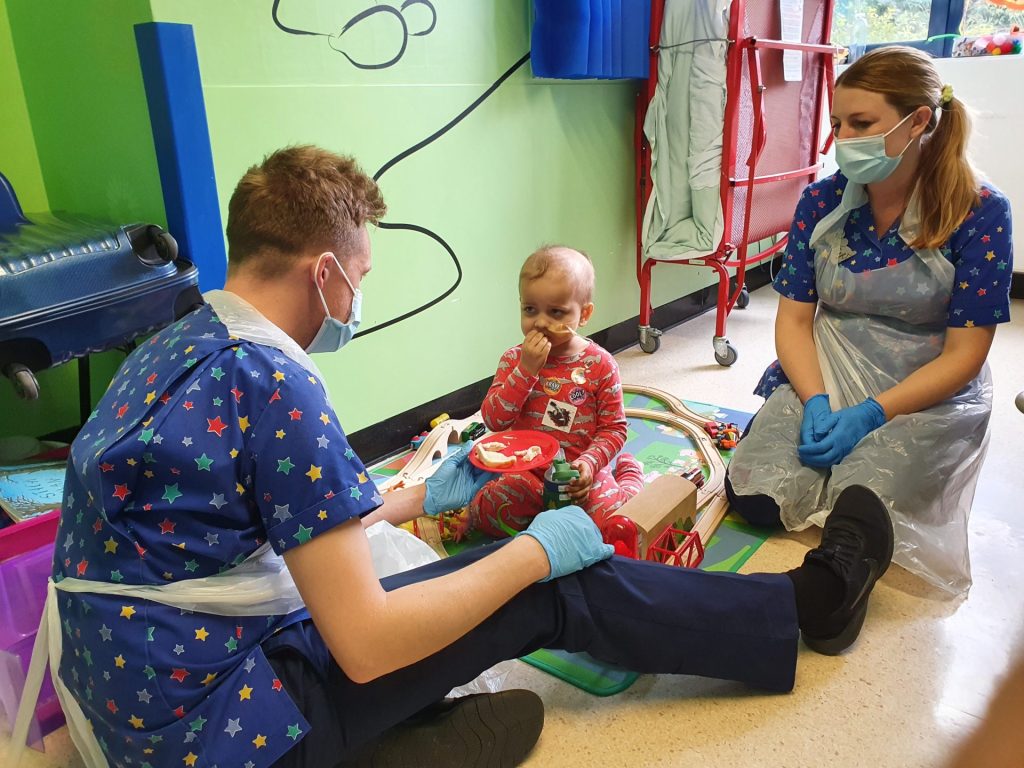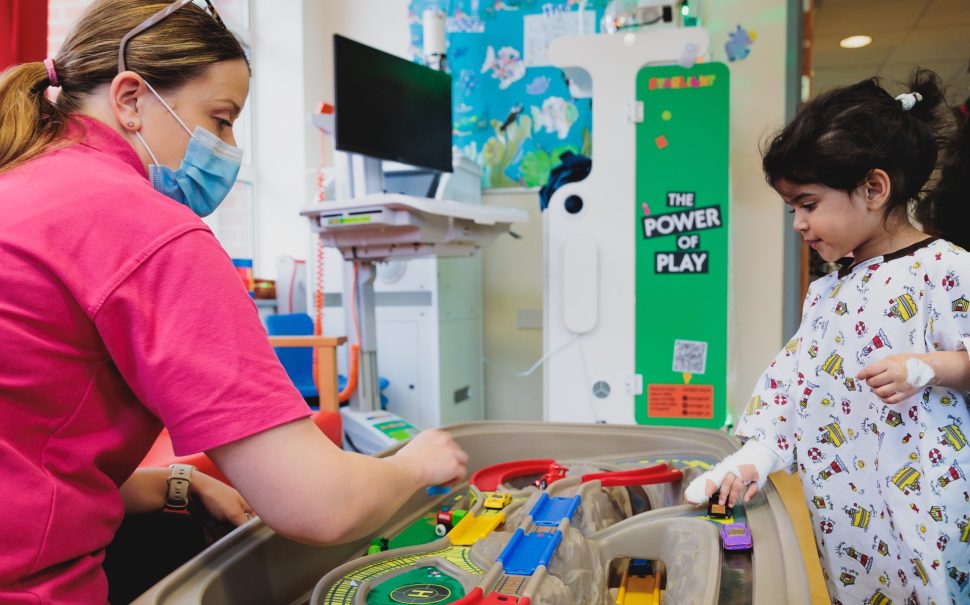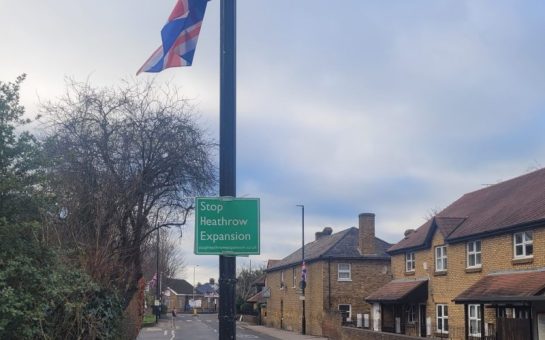Children in London’s hospitals and hospices are at greater risk of long-term trauma because of a lack of play, a leading charity has warned.
The findings come from a report by Starlight, a children’s charity that focuses on play in healthcare.
Health play workers are trained healthcare specialists who can be in the room when procedures are happening to explain complex medical situations to children, encouraging children to describe how they feel.
The report revealed that only 15% of UK Trusts and Health Boards have policies and procedures for play, whilst 71% of health settings have no designated budget for play resources.
Starlight claims this is a worsening issue, particularly as the number of children with life-threatening or life-limiting conditions increased by 163% between 2001 and 2018.
Laura Walsh, 47, Head of Play at Starlight, said play is a fundamental right which must be upheld.
“In very concrete terms, under the UN Convention on the Rights of the Child, Article 31 explicitly states that children have a right to play, recreation and engagement with the arts,” she explained.
“When children enter hospital they’re immediately reminded of how little power they have, it’s not their responsibility to fight for play. It’s adults that have to create those conditions.”
Today is World Play Day and you know we couldn't miss this! 🏆
— Starlight (@starlight_uk) October 12, 2023
Play lets children develop their 'superpowers', the skills they need to develop and navigate life in a happy + healthy way. Today, and every day, we will continue championing seriously ill children's right to play. pic.twitter.com/QlAQpj70Tb
Susana Casanova, 51, from Battersea, says her son Afonso’s access to play in hospital was fundamental to his positive care experience.
Afonso was diagnosed with Leukemia aged three in 2020 and spent most of his time at Kingston Hospital.
Susana said: “When he started treatment, Afonso began to identify hospitals with play and toys. He thinks he’s going to the hospital to play, not to have a scary treatment.
“He feels completely at ease with the play team, they laugh and joke together, they’re like a family.”
Play had benefits for Susana as well as her son, enabling her to rest during otherwise stressful days.
She described how the play team gave her time to eat, walk, and have a shower, believing that the team cared for her as well as Afonso, even if that wasn’t their job.
Afonso has now gone into remission and is living at home full-time.
Susana believes the transition has been made smoother by Afonso’s play experience in hospital, where he could do normal things like paint and play with toys whilst receiving vital cancer care.

Hamera Elahi, 38, Healthcare Play Specialist at Newham Hospital, described play as a welcome release from physical scrutiny, providing children with creative distraction in a clinical setting.
She said: “It can aid as a coping mechanism for being away from familiar faces and environments, enabling children to normalise their stay.
“Play can transport children and young people away from the real reason for being in hospital.
“Play is useful for doctors too, especially when children are anxious or shy.
‘The specialist can then find and activity to do that doesn’t need the doctors to fully examine the child, like walking to the garden or kicking a ball.
“This way the doctors are able to see if the child can walk properly, is wobbly or has any other issues.”
For Dr Krutika Pau, 62, deputy CEO and Director of Children’s Services at Starlight, play is fundamental to showing children that they will be safe and heard in hospital, reminding them that hospitals are their to help them, even if they are daunting at times.
She said: “You go to hospital because that’s going to make things better.
“But then you get probed and touched and it doesn’t feel like anything’s getting better. By reducing discomfort, play helps to lessen the dissonance between thinking this will help me feel good, and actually feeling good in hospital.
“Play isn’t something you should do as an afterthought, a bit on the edge of things.
“Imagine being the parent of a sick child and you’ve got a couple of other kids and you are just so torn.
“You’re trying to keep your job down, you have limited space and time, it’s such a relief to know somebody is playing with your child, that somebody’s caring for them.
“Play is absolutely integral to children’s experience of hospital, not just at the time, but as they get older.”
As the report shows, those who played during their childhood hospital visits now feel happier and calmer when visiting hospitals as adults.
long-term impacts of hospital play by Madeleine AndersonIn fact, these adults were almost twice as likely to state that their experiences of healthcare in childhood had a positive impact on their future mental health and wellbeing.
Starlight is now calling upon the government and health services to respond to their evidence, arguing that play must be more widely available to children in hospital across the UK.
The report concludes: “Play is arguably the most authentic expression of identity, the essence of who we are.
“Children have a fierce need to play because they are are the start of their great journeys of life.
“We believe the highest attainable standard of health can only be realised if children are supported to engage in play.”
Image credit: Starlight, Susana Casanova





